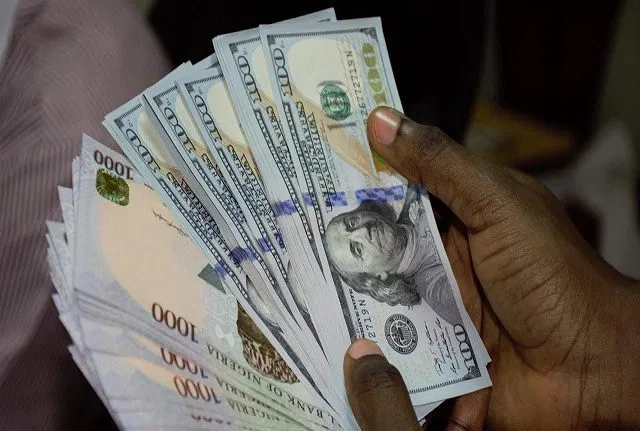The dollars changed for the naira as high as N389.25 during intraday trading as it gained slightly at the I&E window as dollar shortages persist. This is according to information on the website of the FMDQOTC.
The week closed with a $38.86 million forex turnover, a marked improvement from an average of $27 million per day recorded last week.
In contrast, the exchange rate at the parallel market fell to a new low after remaining unchanged for four consecutive days as it closed at N475/$1 on Monday, July 27, 2020.
Parallel Market: At the black market where forex is traded unofficially, the Naira depreciated by N3 to a dollar to crash to a new low of N475/$1 on Monday, according to information from Abokifx, a prominent FX tracking website. This is against the N472 to a dollar that it exchanged on Friday last week.
However, some traders contacted by Nairametrics research quoted a price of N473/$1. It is not uncommon to see prices closely different within the market.
Market Watch
NAFEX: The Naira appreciated against the dollar at the Investors and Exporters (I&E) window on Monday, closing at N389.25/$1. This represents a 25 kobo gain when compared to the N389.50 rate close that was reported on Friday, July 24. The opening indicative rate was N388.10 to a dollar on Monday. This represents a 11 kobo gain when compared to the N388.21 to a dollar that was recorded on Friday.
The naira fell to as high as N390 during intraday trading before strengthening to the closed rate of N389.25. It also sold for as low as N380/$1 during intraday trading. Forex is sold at several prices during the day.
The 0.4% depreciation week on week (it was N388.5/$1 coming into last week) is perhaps attributed to the weaker forex turnover that was experienced last week.
Forex Turnover: Meanwhile, forex turnover at the Investor and Exporters (I&E) window recorded a decline on Monday, July 27, 2020, as it dropped by 11% day on day. According to the data tracked by Nairametrics from FMDQ, forex turnover decreased from $43.67 million on Friday, July 24, 2020, to $38.86 million on Monday, July 27, 2020.
The average forex sale for last week was as low as $27 million compared to $47 million the week before. We also noted that on no day last week did we record a sale close to or above $100 million, the first time this month.
Exchange rate disparity
The exchange rate disparity between the official NAFEX rate and black-market rate increased further on Monday staying as wide as N85.75. Nigeria maintains multiple exchange rates comprising the CBN official rate, the BDC rates, SMIS, and the NAFEX (I&E window).
Exchange rate unification remains on the cards and yet to be implemented weeks after the central bank governor confirmed it will be executed.
The minister of Finance also admitted that Nigeria was seeking a unification of its forex Windows, a move thought to be in line with the requirements from the World Bank. Nigeria is seeking a world bank loan of up to $3 billion. The country has been under pressure from the International Monetary Fund and the World Bank for currency reforms.
Covid-19 Pressures
Nigeria’s airspace remains closed to commercial international flight operations and won’t be open till October 2020. Foreign Travel has often been a source of demand for the greenback.
The recent demand for dollars at the parallel market is thought to be fueled by speculators. The parallel market also caters to forex trades through wire transfers especially for buyers who cannot fulfill their dollar demands at the I&E window or the SMIS window. Exchange rate for wired transfer is often at a premium to the black market rate.
Forex Challenges: Last week has been one of the most challenging for the foreign exchange market as it witnessed very low liquidity. The downward slide against the greenback and some other major currencies appears to have continued this week.
Dollar shortages have plagued the country for some months after crash in oil prices, Nigeria’s major foreign exchange earner, thereby shifting demand to the black market. The increasing disparity between the official rate and the black market rate will most likely encourage more speculation at the foreign exchange market.
In a bid to conserve foreign exchange, the Central Bank of Nigeria (CBN) directed banks to stop processing new trade documents for importation of maize.
BDC proffers solution
According to a report from Nairametrics, the Association of Bureau De Change Operators (ABCON) President, Aminu Gwadebe, revealed that the reopening of the BDC window for foreign exchange, among others would crash the prevailing spike in the exchange rate.
He said that the BDC s, have always been the medium and bridge for availability of liquidity at the retail end of the foreign exchange market. He also said that they had always provided some level of exchange rate stability in the forex market due to its proximity of BDCs to genuine FX end users.
Source: Nairametrics













